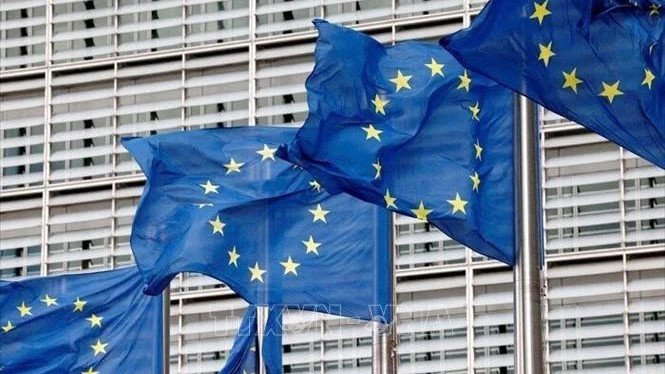Before entering the Summit with an agenda full of hot issues, EU Council President Charles Michel called on leaders of EU countries to “come equipped with a spirit of compromise, a sense of collective responsibility, with the Union’s interests and values at the forefront of your minds.”
Analysts said this was a challenging summit and may take longer than expected. The EU’s big problems have existed long before this summit. The EU has also conducted many working programmes to resolve disagreements but has not achieved any breakthrough results.
The division continued to shadow the recent summit. Although the leaders of EU countries finally agreed to open negotiations on admitting Ukraine and Moldova into the union, the budget issue did not go so smoothly. The EU could not reach a consensus on a budget plan because Hungary vetoed 50 billion EUR in aid for Ukraine. Leaders were forced to move the discussion on the common budget to a meeting in early 2024.
For a long time, the financial issue has been a complex problem for the EU in the context of a depleted budget due to a series of factors, such as the economic crisis, the large recovery plan after the COVID-19 pandemic, and funding activities for several issues such as migration, technological competitiveness, and crisis response. The impact of the conflict in Ukraine has also pushed inflation in Europe to record levels.
The European Commission (EC) proposed increasing the budget by 66 billion EUR until 2027 to respond to economic and political challenges. When making this proposal, EC President Ursula von der Leyen admitted that this is a large amount of money and is difficult to reach an immediate consensus in the context of large budget deficits in member states due to crises.
Illegal immigration is also a prominent issue. According to the European Border Agency (Frontex), up to 355,300 illegal migrants arrived in the EU in the 11 months of 2023, up 17% compared to the same period in 2022, the highest number since 2016. The largest increase in illegal migrants was recorded in the West African route to Spain’s Canary Islands.
The wave of illegal immigration causes major consequences and is a persistent challenge for the EU, requiring a common response from the entire bloc. In October 2023, the EU reached an agreement on migration and asylum, with the support of 22 out of 27 member countries.
However, according to analysts, it will be very challenging for the EU to effectively implement the agreement in practice because it cannot find a common voice in sharing the burden of receiving migrants. Poland and Hungary criticise that EU decisions are taken according to a qualified majority, not the principle of unanimity.
The complicated conflict between Israel and Hamas forces in 2023 also affects the EU. Expert Luigi Scazzieri from the Centre for European Reform said that managing conflicts in Ukraine and the Middle East is complicated for the EU, as it has to divide attention and financial resources between the two crises. The division of EU member states over policy towards the Israel-Hamas conflict negatively affects the bloc’s reputation.
Meanwhile, the risk of terrorist attacks returns to the EU. Since the outbreak of the Israel-Hamas conflict, incidents against Jews and Muslims have tended to rise in several European countries. EU Commissioner for Home Affairs Ylva Johansson warned that the union faces a huge risk of terrorist attacks before the Christmas holiday amid continuous conflict in the Middle East.
With 27 member countries, including many countries with considerable global influence, disagreements and differences in the EU are inevitable. However, these differences can still be bridged if countries put common interests first. The EU’s unification of opinion and creation of a foundation for realising common action is essential for the future and reputation of the bloc.
















